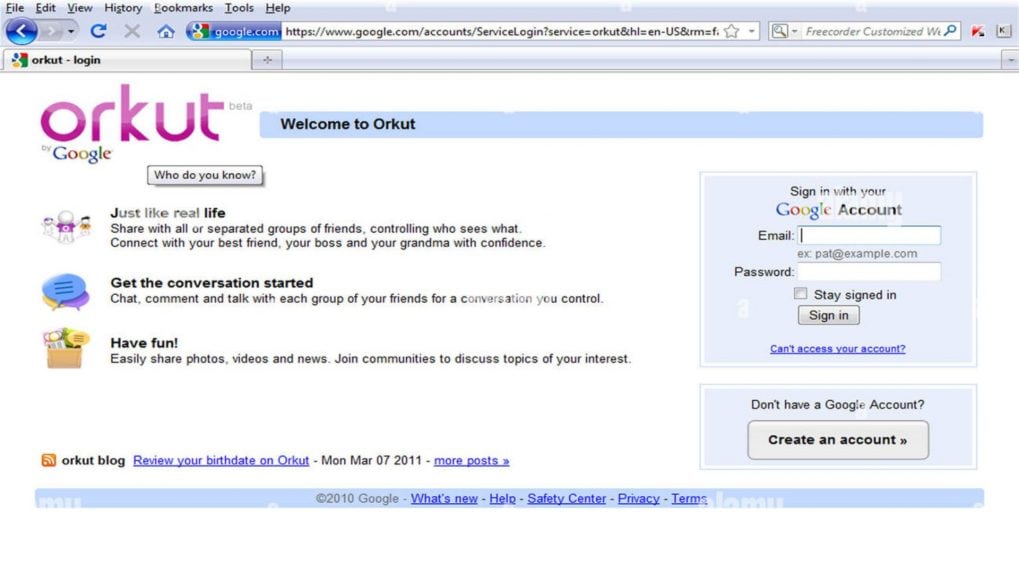Digital
Why OpenAI is hiring 100 ex-bankers: Inside the ChatGPT-maker's secret project to automate Wall Street's grunt work

In the pre-Facebook era, before algorithms dictated your feed and privacy policies became unreadable tomes, there was Orkut - the original playground of online friendships for millions of Indians.
Launched in 2004 by Google employee Orkut Büyükkökten as a passion project, the platform quickly became a cultural phenomenon in countries like India and Brazil.
For a generation of early internet users, Orkut was their taste of social networking. And yet, within a decade, it was gone.
So, what happened?
The Rise: A Scrappy Start to Stardom
When Orkut launched, it arrived in a relatively empty digital landscape. Social media was still in its infancy, and Orkut offered an irresistible mix: public profiles, "scraps" (messages left by friends), "testimonials" (digital love letters), and the ability to browse profiles of complete strangers - a guilty pleasure many secretly indulged in.
Its intuitive layout, community-driven culture, and easy friend-finding features turned it into a craze. By 2008, India alone accounted for nearly 20% of Orkut's global traffic, second only to Brazil. From college canteens to cyber cafes, "scrap me" became a phrase as common as "call me."
It wasn't just about socialising. Orkut communities became platforms for debates, fan clubs, and even matchmaking. For many, it was a rite of passage - a digital coming-of-age.
The Fall: From Cool to Clunky
But while Orkut ruled hearts,, it failed to evolve.
As the social media universe began expanding rapidly, Orkut stagnated. Facebook, which opened to the public in 2006, brought a more polished user interface, privacy controls, and addictive features like the News Feed and photo tagging.
Orkut, in contrast, remained static and rudimentary. Its interface looked increasingly dated. Worse, Google never fully integrated Orkut into its broader product ecosystem, treating it as a side hustle rather than a strategic asset.
Security became a growing concern. The platform was notorious for spammy messages, fake profiles, and offensive content in communities. Unlike Facebook, which doubled down on real identities and content moderation, Orkut struggled with digital hygiene. Its open searchability also raised privacy red flags.
By the time google attempted to revamp Orkut with design upgrades in 2011, the damage had already been done. Facebook had already pulled ahead, sucking away both users and attention.
The End: A Quiet Goodbye
On September 30, 2014, Google officially pulled the plug on Orkut. Few were surprised, but many were nostalgic. For a whole generation, it was like saying goodbye to a childhood friend.
But the story didn't quite end there.
In 2018, Orkut Büyükkökten launched Hello Network, an app that focused on connecting people around shared passions - echoing the community-driven ethos of Orkut.
However, Hello never quite gained the same traction, lost in a saturated market dominated by Instagram, TikTok, and LinkedIn. The domain orkut.com now redirects to a nostalgic note from its founder, a digital tombstone of sorts.
Orkut digital note
Legacy: More Than Just a Platform
Orkut may be gone, but its influence lingers. It was the social media training ground for millions over the globe. It shaped how people curated their online identities, expressed affection through testimonials, and understood digital connection.
Today's hyper-connected world of filters and reels might feel like light years ahead, but there was something charmingly earnest about Orkut - a time when the internet was less about influencers and more about "frandship."
As platforms rise and fall, Orkut serves a reminder: in the ever-shifting sands of social media, even giants can become ghosts.
In a wide-ranging interview with Storyboard18, Sorrell delivers his frankest assessment yet of how the deal will redefine creativity, media, and talent across markets.